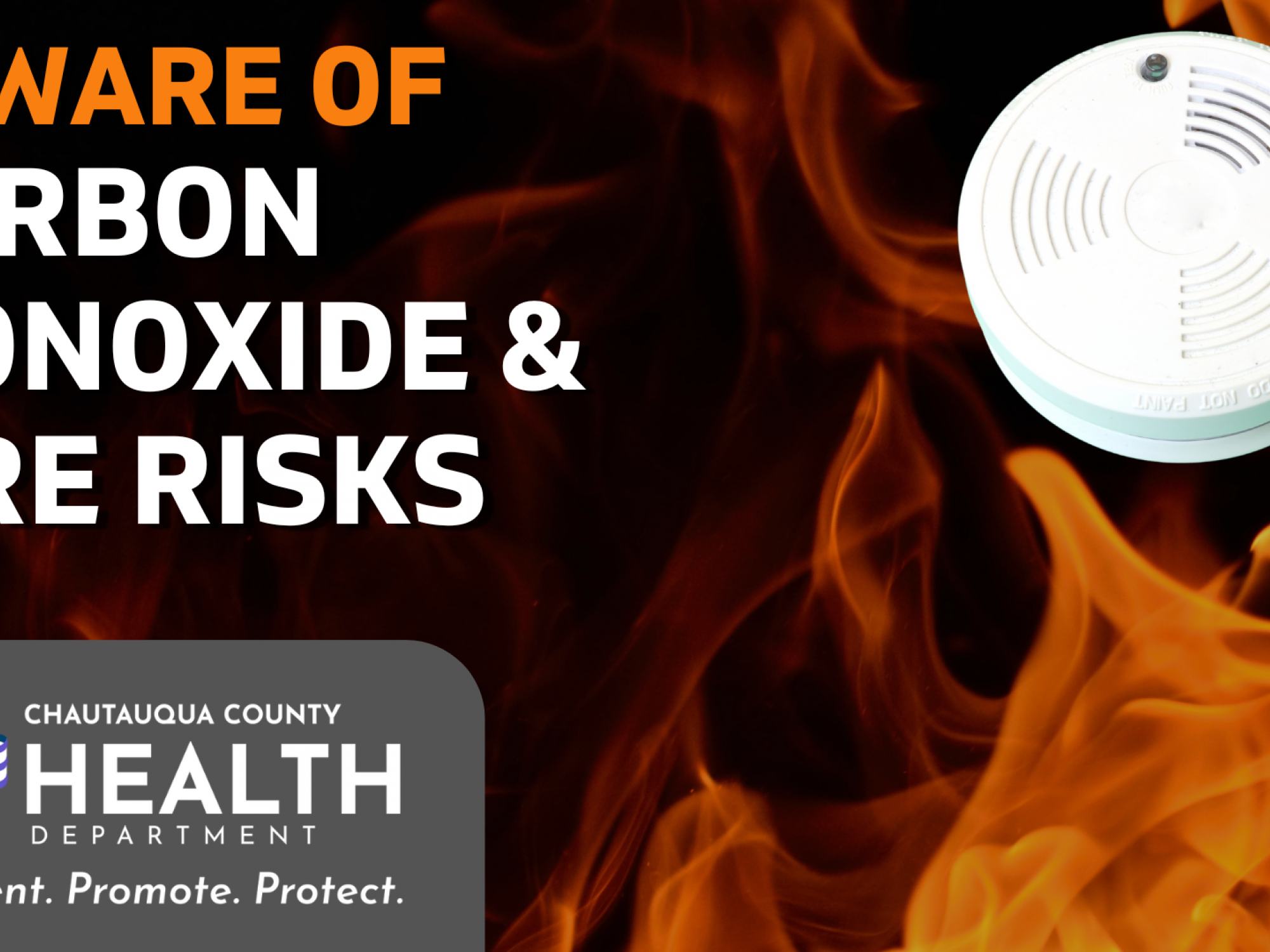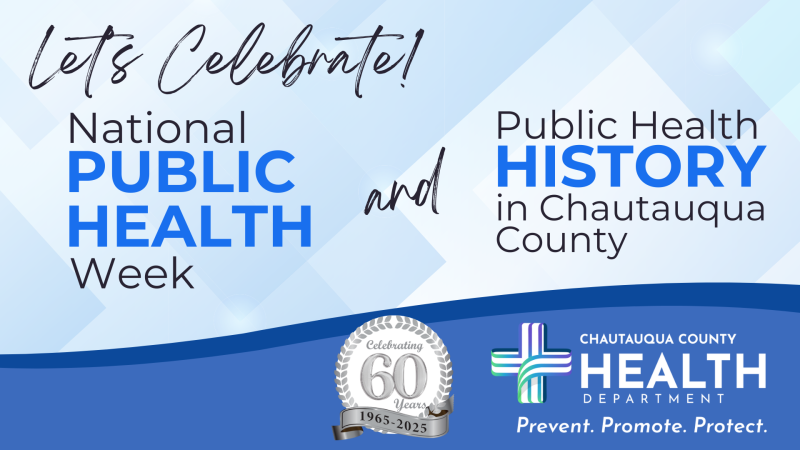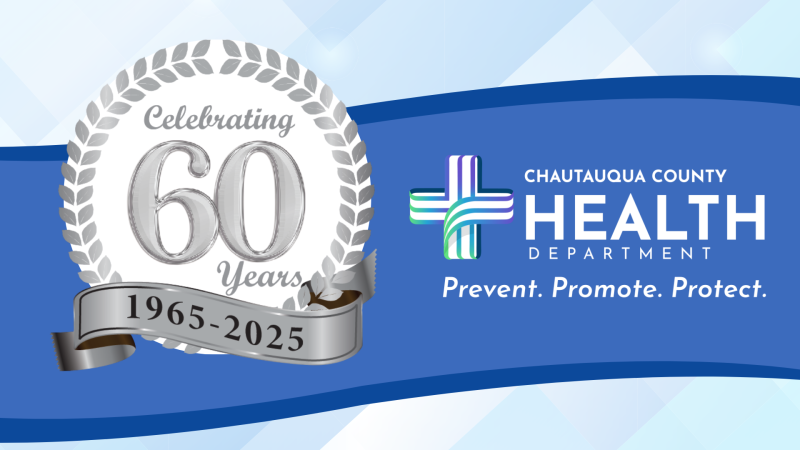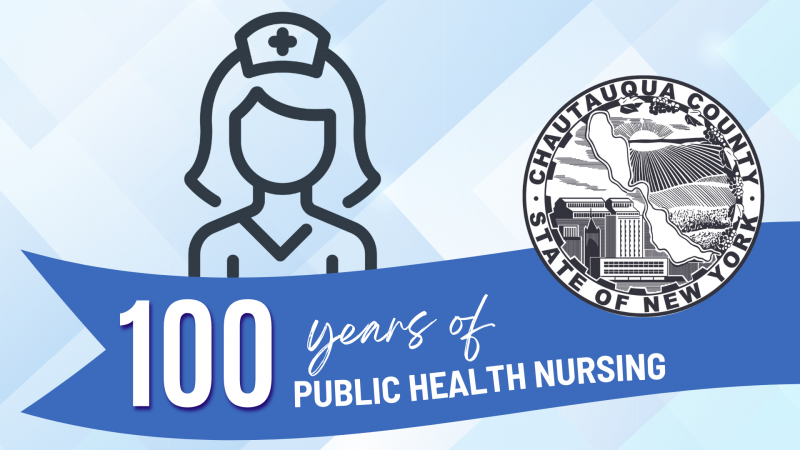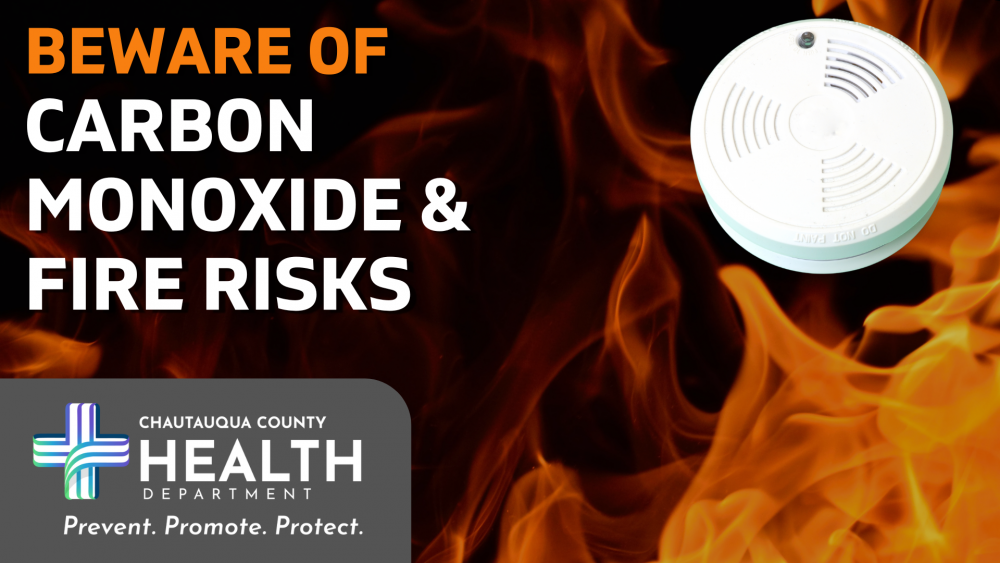
MAYVILLE, NY – As the colder weather approaches, that means it’s time to think about keeping warm. But while we're cranking up the heat, it's important to stay safe from carbon monoxide (CO) and fire risks. The Chautauqua County’s Emergency Services, Office for Aging Services, and Health Department share tips on how residents can protect themselves and their families this fall and winter season.
Carbon Monoxide Poisoning
Carbon monoxide is a dangerous gas you cannot see or smell, which is why it’s called the "silent killer." It is found in fumes produced any time you burn fuel in cars or trucks, small engines, stoves, lanterns, grills, fireplaces, gas ranges, or furnaces.
According to the US Centers for Disease Control and Prevention (CDC), each year, more than 400 Americans die from unintentional CO poisoning not linked to fires, more than 100,000 people visit the emergency room, and more than 14,000 are hospitalized.
“Many people experiencing carbon monoxide poisoning will have symptoms including headache, dizziness, weakness, upset stomach, vomiting, chest pain, and confusion. Symptoms are often described as flu-like,” states Chautauqua County’s Chief Medical Officer, Dr. Michael Faulk. “Running a generator inside is absolutely not recommended. Not having properly functioning carbon monoxide and smoke detectors in your home is a risk that’s just not worth taking.”
House Fire Safety
The American Red Cross indicates home fires are the nation’s most frequent disaster. Most people don’t realize they have just two minutes to escape a home fire. On average, seven (7) people die and more than 30 people suffer injuries from home fires every day.
“House fires are extremely dangerous and can lead to the unfortunate loss of loved ones, pets, and can cause tens of thousands of dollars in property damage. The minimal cost of installing a carbon monoxide and smoke detector is money well spent,” states Chautauqua County’s Emergency Services Director, Noel Guttman. “I urge everyone learn how to decrease the likelihood of having to experience a fire in your home.”
How to Stay Safe
Here are some easy tips to protect yourself and your family from CO and house fires:
- Install CO and smoke detectors. Be sure to install both a CO and smoke detectors where you sleep and in other main spots at home. Replace batteries in battery-operated devices twice a year, like when you change the clocks in spring and fall.
- Create a fire escape plan. Every second counts! Escape plans help you get out of your home quickly. Develop and practice your home fire escape plan twice each year with your entire family.
- Know where your fire extinguishers are and check to make sure they haven’t expired and are working properly.
- Keep lighters and matches out of reach of children and teach kids not to play with them.
- Keep things ventilated. Make sure gas appliances have good airflow. Vent pipes should tilt upwards so CO can escape.
- Schedule regular maintenance for fuel burning appliances. Have a pro look at your heating system and other fuel-burning appliances once a year to make sure they’re safe.
- Inspect your chimney. Clean your chimney every year to prevent CO or other build up from getting trapped inside.
- Don’t use gas stoves or ovens to heat your home. They can make CO build up and are a fire risk.
- If you use a generator, keep it outside. Keep generators at least 20 feet away from windows and doors and always use a CO detector.
Older adults are at increased risk of dying during a fire or carbon monoxide emergency. Having physical or mental impairments, using medicines and alcohol, and living with smokers or in substandard housing are some risk factors that make older adults more vulnerable.
Dana Corwin, Chautauqua County Office for Aging Services Interim Director adds, “I encourage residents to help older family members and loved ones by checking their carbon monoxide and smoke detectors regularly to make sure they are working properly and make sure loved ones have a plan in place to keep them safe in the event of an emergency. Contact the building manager or fire department to discuss plans if extra assistance is needed to evacuate.”
We care about your safety! By following these simple tips, we can all stay safe and warm this winter. For more info on carbon monoxide poisoning, visit the CDC’s website: www.cdc.gov/carbon-monoxide. More information on how to protect yourself and the ones you love from fire risks can be found by visiting www.ready.gov/home-fires.
The WNY Red Cross offers free smoke detectors to all Chautauqua County residents. To receive your free detector visit their website at www.redcross.org/local/new-york/western-new-york/about-us/our-work/home-fire-campaign.html or call 716-664-5115.
About Chautauqua County Health Department - The Chautauqua County Health Department is the leading Public Health organization in Chautauqua County dedicated to the support of the community’s health. The Health Department takes innovative approaches to provide technical assistance to partner organizations, and offers various programs and services in order to help prevent disease, protect the public’s health and promote our community’s overall health and wellness. For more information visit www.HealthyCHQ.com.

